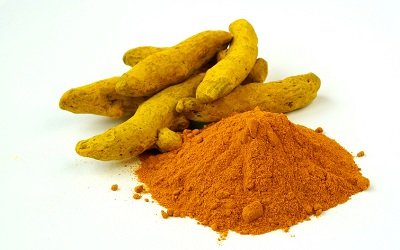Inside BENEO’s new pulse plant: pioneering sustainable protein from faba beans
As the opening salvo in a campaign against adulteration of Curcumin, Bangalore-based Indian Multinational Health Science Company, Sami Labs Ltd, which manufactures and markets phytonutrients and standardized herbal extracts, specialty fine chemicals, and organic intermediates used in the nutritional, dermaceutical and food industries, has filed criminal complaint against Bayir Extracts Private Limited, Bangalore, India for knowingly supplying adulterated Turmeric Oleoresin with a forged Certificate of Analysis. The filed court papers from Sami Labs are requesting a Cease and Investigation into this matter.
The complaint was filed with the VII Additional Chief Magistrate, Bangalore under the Code of Criminal Procedure, registered with the court, and referred to the Peenya Police department for further proceedings.
Results of radiocarbon testing by University of Georgia Center for Applied Isotope Studies on commercially available samples of Curcumin sold by Bayir for export to the US determined that the material was 43% synthetic.
FDA views synthetic versions of natural botanical compounds to be different from the botanical itself, thus a supplier of such material would be required to file an NDI notification with FDA, including proof of safety, for the products to be legally sold in the US.
According to Sami / Sabinsa founder Dr Muhammed Majeed some American companies either unknowingly or with the intention of saving money buy these cheaper synthetic materials labeled as natural products. He went on to explain that the natural product may have distinctively different pharmacological activities compared to synthetically made Curcuminoids composition.
As the industry gets more serious about quality issues, identifying synthetic versions of herbal products becomes crucial. The obvious question is “what was it synthesized from? What chemicals were used, and in what process? How do you know it is safe for consumption by humans?” If a company is selling synthetic Curcumin, and not identifying that some or all of it was synthetically derived, that lack of transparency is not only misleading consumers who think they are taking a product derived from turmeric root, but has the potential to hurt people.
Synthetic copies are, however, difficult to trace in a product using routine analysis. Plant-derived products can be distinguished from synthetic products by their content of natural carbon activity. The use of DNA testing for herbal extracts is debatable, however we know the DNA technique fails when it comes to finding adulteration with synthetic material. Therefore identification and quantification of radiocarbon in these cases provides an accurate way to detect adulteration.
“With FDA requiring the dietary supplement manufacturing companies to test raw material in their products, the amount of active compounds in them have come under scrutiny for label claims,” said Dr. Majeed “In the case of turmeric, as sales have grown adulteration has become a problem because natural sourced, good quality turmeric is expensive. Unfortunately some suppliers find it easy to adulterate the plant material with cheaper synthetic material.”
The group is evaluating other steps to combat adulteration in the Curcumin market. “As the pioneer in Curcumin supply, it has a vested interest protecting the integrity of the Curcumin market,” said Shaheen Majeed, Sabinsa’s Marketing Director. “The vast majority of published clinical studies on Curcumin are done using our C3 Complex ingredient, and that robust body of science has helped mainstream Curcumin products. We intend to ensure that consumers are getting what they expect when they take Curcumin.”
The New York Attorney General’s action earlier this year and resulting inundation of negative media coverage brought quality issues in the industry to the forefront, making it essential that the industry polices itself more actively. It is responsibility of the industry to raise standards on testing procedures to eliminate such adulteration by using the most appropriate and best available technologies and also create more robust supply chain management and control procedures to avoid such adulteration in the raw material stage.

